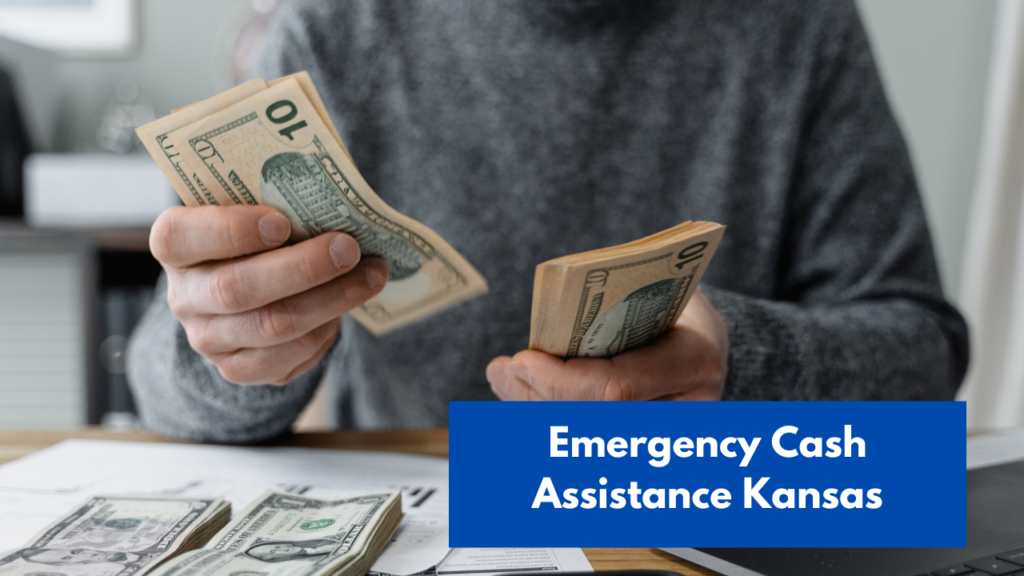In times of financial crises, programs offering emergency cash assistance in Kansas provide a critical lifeline. These programs aim to help individuals and families meet their basic needs during unexpected hardships. From rent relief to medical bill coverage, Kansas offers a range of resources to support its residents.
Emergency financial assistance is temporary financial assistance designed to help individuals and families deal with an immediate crisis. These programs focus on providing resources to meet essential needs, such as rent and utilities, medical expenses, and food. A variety of public and private initiatives in Kansas are giving residents access to the help they need during these challenging times.
This assistance is often a stop-gap solution. This helps recipients regain stability and deal with situations such as migration, hunger, and long-term unemployment. It targets immediate financial needs. These programs aim to improve the quality of life for Kansans facing hardship.
How Much Cash Assistance is Available in Kansas?
The amount of cash assistance available in Kansas depends on several factors. This includes family size, income, and specific qualification requirements. Kansas provides cash assistance through the Temporary Assistance for Needy Families (TANF) program, which aims to help low-income families meet basic needs.
As of recent guidelines:
- The maximum cash benefit for a family of three is approximately $430 per month.
- The exact amount may vary depending on personal circumstances such as income, assets, and household structure.
- To apply for TANF in Kansas, you can visit the Kansas Department of Children and Families (DCF) website or the local DCF office. The program also requires recipients to participate in work-related activities unless exempt.
Emergency Cash Assistance Kansas

1. Temporary Assistance for Needy Families (TANF) – Successful Families Program
The Kansas Department for Children and Families (DCF) administers the TANF program, known locally as the Successful Families Program. This program provides monthly cash assistance to low-income families with children, helping them meet their basic needs.
Eligibility Criteria:
- Must be a U.S. citizen or qualified non-citizen residing in Kansas.
- Have dependent children under 18 years old.
- Meet income and resource guidelines set by DCF.
- Participate in work-related activities unless exempt.
Benefit Amounts: Monthly assistance varies based on family size and county classification:
| Family Size | Rural County | High-Cost County | High Population County | High-Cost & High Population County |
|---|---|---|---|---|
| 1 | $168 | $170 | $175 | $186 |
| 2 | $263 | $265 | $271 | $284 |
| 3 | $349 | $352 | $359 | $375 |
| 4 | $421 | $425 | $432 | $449 |
| 5 | $487 | $490 | $499 | $517 |
| 6 | $557 | $561 | $571 | $592 |
| 7 | $618 | $622 | $632 | $653 |
| 8 | $679 | $683 | $693 | $714 |
Add $61 for each additional person.
Application Process: Applications can be submitted online through the DCF Self-Service Portal or by visiting a local DCF office.
2. Diversion Payment Program
The Diversion Payment is a one-time lump sum offered to families eligible for TANF who face a short-term crisis that could jeopardize employment.
Eligibility Criteria:
- No household member has received TANF benefits as an adult in Kansas or another state.
- At least one adult has current employment or a valid job offer.
- The family has not previously received a Diversion Payment.
- The anticipated TANF benefit over a year must be at least $1,000.
- The family faces a documented crisis (e.g., car repairs, eviction notice) that threatens employment.
Important Note: Accepting a Diversion Payment renders the family ineligible for TANF benefits for one year.
3. Low-Income Energy Assistance Program (LIHEAP)
LIHEAP helps low-income households with energy costs, especially heating during the winter months.
Program Details:
- Heating assistance is available from November 18 to March 31.
- Crisis assistance is provided for emergencies like utility shutoffs or broken heating systems.
- Maximum heating benefit: $2,232; crisis benefit: up to $4,301.
- Income eligibility varies by household size (e.g., $3,900/month for a family of four).
Application Process: Applicants can apply through local DCF offices or designated community agencies.
4. Kansas Emergency Rental Assistance (KERA) Program
The KERA program provided rental and utility assistance to households affected by the COVID-19 pandemic. Although the program has now concluded, it provided significant support during its duration.
Program Highlights:
- Assisted over 82,000 Kansans, distributing more than $290 million.
- Covered up to 18 months of rent and utility arrears.
- Applications were jointly submitted by tenants and landlords.
Current Status: The KERA program is now closed, and no new applications are being accepted.
5. Public Assistance for Disaster Relief
In response to major disasters, such as the COVID-19 pandemic, Kansans can access federal assistance through programs administered by the Kansas Adjutant General’s Department.
Program Details:
- Provides funding for emergency protective measures.
- Assistance is available to all 105 counties and four tribes in Kansas.
- Funding covers 100% of eligible costs through specific timeframes.
Application Process: Eligible entities can submit a Request for Public Assistance (RPA) through the Kansas Division of Emergency Management.
Conclusion
Kansas offers several emergency financial assistance programs to support residents in times of need. Eligibility requirements and benefits vary by program, so it’s essential to carefully review each program’s criteria. For more information or to apply for assistance, visit the Kansas Department for Children and Families or contact your local DCF office.

